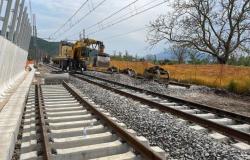Lamezia Terme – a public meeting between olive growers, forestry police, sector technicians and representatives of the city government was held in the Sala Napolitano of the Town Hall. The reason for the event, organized by the trade association Acroprol, was the new CAP, which came into force on January 1st 2023, which provides for a series of interventions in favor of olive growers, and the regulations to guarantee the quality of the product and respect for the agri-environmental system.
After greetings from Mayor Paolo Mascaro, Acoprol president Saverio Raso opened the proceedings by thanking the numerous agricultural entrepreneurs present for their participation. “We are going to face the next olive growing campaign with the awareness that the olive oil sector still represents an important voice in the sector of the transformation of agricultural products – states Raso – the milling plants are widespread in a large part of the territory and their operation is regulated by national and regional regulations, regulations that our mill members have always respected and today’s meeting with the forestry carabinieri represents a moment of transposition of further information regarding the latest regulations introduced, in such a way as to arrive at the next olive oil campaign with all the documents in order.”
The councilor for agriculture of the Municipality of Lamezia Terme Luigi Muraca said he was satisfied with today’s meeting, as it represents a useful moment of discussion for a peaceful start to what will be the next olive oil campaign, for our part – states Muraca – the municipal administration, within its sphere of competence, is in support of the olive growers and everything that represents the olive oil sector.
The Acroprol technician and agronomist Raffaele Talarico spoke about the 2023-2027 CAP reform, highlighting that it presents numerous innovations for the olive oil sector which particularly concern the direct payment regime and sectoral interventions. In the first case there is an overall reformulation of the approach, with a strong convergence of the value of the decoupled CAP titles (formerly oil integration) and with the appearance of two new components, the redistributive payment and the ecological regime.
Equally interesting was the intervention of Brigadier Rosario Abruzzini, Commander of the Carabinieri Forestry Unit of Lamezia Terme. “Although there are many oil mills that operate in compliance with the regulations, illegal conduct still persists which requires us not to lower our guard and to keep the situation constantly under control. under attention. The irregularities most frequently found by the Forestry Carabinieri in inspection campaigns are linked to defects in authorizations (abusive conduct), or to the wild spreading of vegetation water and wet pomace on the land which, in addition to creating problems of bad odors, are often reported of citizens, constitute phenomena of stagnation due to excess of the soil’s absorption capacity” – as stated by Brigadier Abruzzini.
Commander Abruzzini also went into detail about some regulations regarding environmental protection linked to agricultural activities, implemented by the various entrepreneurs present in the room with particular attention, a sign of certain responsibility on their part in operating with respect for the environment and human health.
For Latest Updates Follow us on Google News





